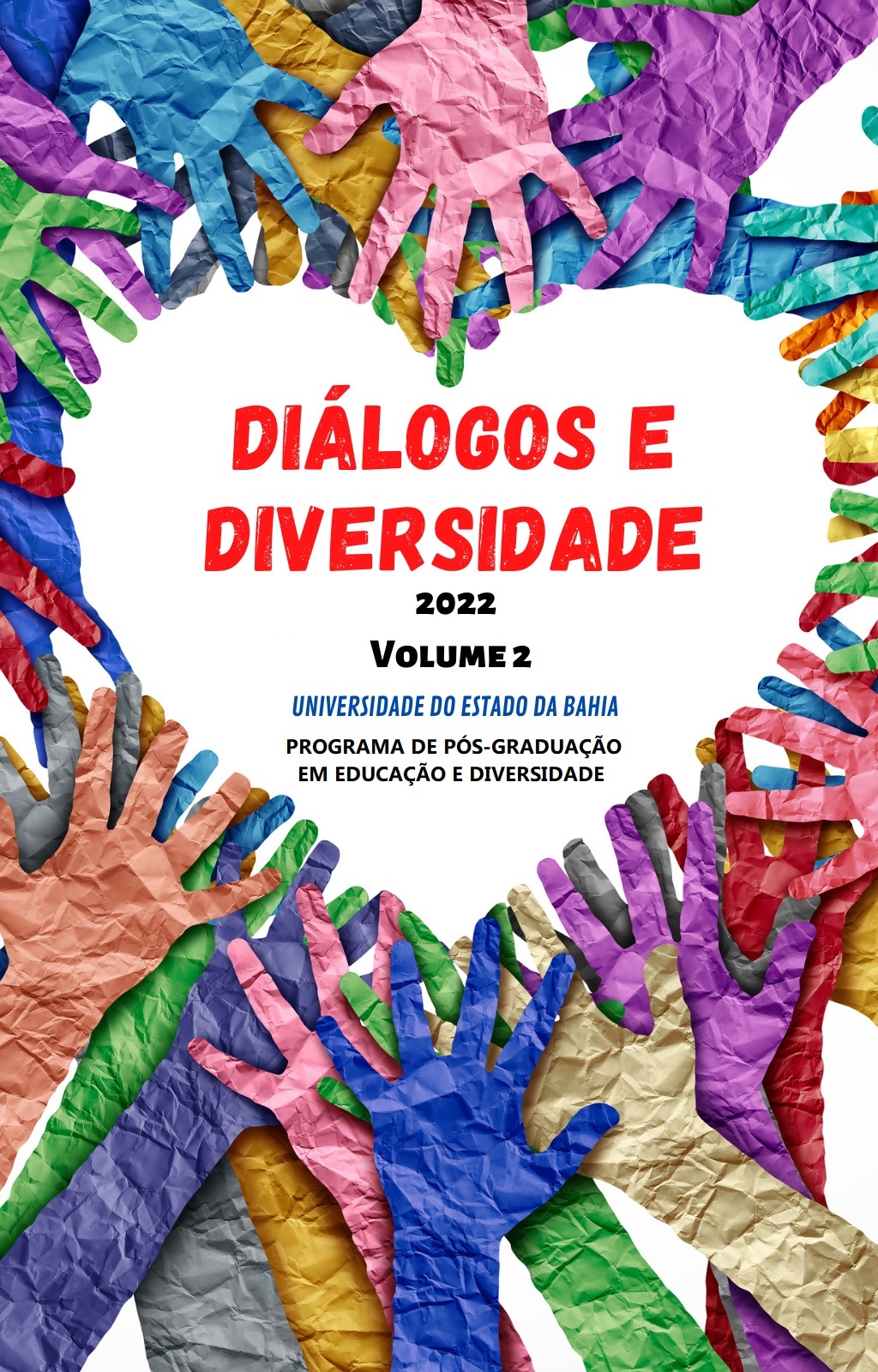FOR A DECOLONIAL EDUCATION: CAPOEIRA IN GAME - APPLICATION OF A MEMORY GAME FOR THE DEAF
Keywords:
Deaf; Learning; Pedagogical Methodology.Abstract
Data from the Brazilian Institute of Geography Statistics (IBGE) released in 2020 point out that more than 10 million people have a problem related to deafness, that is, 5% of the Brazilian population is deaf. The objective of this experience report is present information about the application of a memory game for the deaf. In the memory game, we take Capoeira as a theme, it is also intended to meet the discussions established in Law No. The main theoretical basis is based on studies postulated by Paulo Freire. This proposal was developed in the Libras discipline, in curricular classes of the Physical Education course at the University of the State of Bahia-UNEB/Campus X-DEDCX, located in the city of Teixeira de Freitas, during the academic semester 2021.1. Methodologically, we adopted strategies from active methodologies and action research. The results point to the importance of playful interventions, which contribute to the formation of a meaningful learning, awaken in the students feelings of belonging, social and cultural identification and provide a reflection of the various conditions that the students live.
Downloads
References
DARIDO, S. C.; RANGEL, I. C. A. Educação Física na escola. Rio de Janeiro: Guanabara Koogan, 2005.
FERREIRA, Larissa. “Entrevista”. In: BRITO, Débora. Mulheres usam roda de capoeira como espaço de luta pela igualdade: Prática pode incentivar resgate da identidade racial. Disponível em: https://agenciabrasil.ebc.com.br/geral/noticia/2018-07/mulheres-usam-roda-de-capoeira-como-espaco-de-luta-pela-igualdade. Acesso em: 6 nov. 2020.
FREIRE, Paulo. Pedagogia do Oprimido. 17ª ed. Rio de Janeiro: Paz e Terra, 1987.
Freire, paulo. alfabetização: leitura do mundo, leitura da palavra. editora paz e terra, 2011.
IBGE. Instituto Brasileiro de Geografia e Estatística, 2020. Pesquisa Nacional por Amostras de Domicílio Contínuas. Disponível em: https://www.ibge.gov.br/estatisticas/sociais/trabalho/9171-pesquisa-nacional-por-amostra-de-domicilios-continua-mensal.html?=&t=o-que-e. Acesso em 20 de nov.2020.
MARTINS, L.; “Performances do tempo espiralar”. In: RAVETTI, Graciela; ARBEX, Márcia. Performance, exílio, fronteiras: errâncias, territoriais e textuais. Belo Horizonte: UFMG, 2002.
O POVO Brasileiro. Direção de Isa Grinspum Ferraz; Rafic Farah. Produção de Carolina Vendramini. Intérpretes: Darcy Ribeiro. Roteiro: Antônio Risério, Isa Grispum Ferraz, Marcos Pompéia. 2000. Disponível em: <https://www.youtube.com/watch?v=wfCpd4ibH3c&list=PLyz4LUAInoJJgiAJBM-MqfA69gClLt1uz>. Acesso em: 15 nov. 2020.
SILVA, Silane Maria, et al. Educando Com a Capoeira. Universidade Federal de Lavras. Lavras. 2008.
Downloads
Published
How to Cite
Issue
Section
License
Copyright (c) 2022 Ivalda Kimberlly Portela, Magno Santos Batista

This work is licensed under a Creative Commons Attribution-ShareAlike 4.0 International License.
Direitos Autorais
A submissão de originais para a Revista Diálogos e Diversidade (RDD) implica na transferência, pelas(os) autoras(es), dos direitos de publicação. Os direitos autorais para os manuscritos publicados nesta revista são das(os) autoras(es), com direitos da RDD sobre a primeira publicação. As(os) autoras(es) somente poderão utilizar os mesmos resultados em outras publicações indicando explicitamente a RDD como o meio da publicação original.
Licença Creative Commons
Exceto onde especificado diferentemente, aplicam-se à matéria publicada neste periódico os termos de uma licença Creative Commons Attribution-ShareAlike 4.0 International License, que permite copiar e redistribuir o material em qualquer suporte ou formato, adaptar, remixar, transformar, e criar a partir do material para qualquer fim, mesmo que comercial, dando o crédito apropriado, prover um link para a licença e indicar se mudanças foram feitas, distribuindo as suas contribuições sob a mesma licença que o original, não podendo aplicar termos jurídicos ou medidas de caráter tecnológico que restrinjam legalmente outros de fazerem algo que a licença permita.



 Esta obra está licenciada com uma Licença
Esta obra está licenciada com uma Licença 